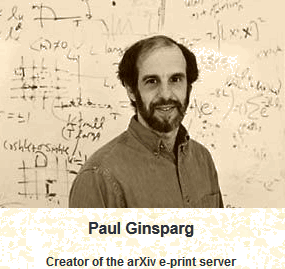|
News & Views item - July 2012 |
![]() UK Government to Mandate Open Access of Publicly Funded Research Within Two
Years. (July 16, 2012)
UK Government to Mandate Open Access of Publicly Funded Research Within Two
Years. (July 16, 2012)
Britain's universities and science minister, David Willetts, in an interview with The Guardian's Ian Sample yesterday said he expected a full transformation to the open access of public funded research over the next two years. In Mr Willetts view: "If the taxpayer has paid for this research to happen, that work shouldn't be put behind a paywall before a British citizen can read it. This will take time to build up, but within a couple of years we should see this fully feeding through."
The announcement is in response to 10 recommendations made by a working group led by Professor Dame Janet Finch, a sociologist and former vice-chancellor of Keele University. Mr Willetts said the government accepted all the proposals, except for a specific point on VAT that was under consideration at the Treasury.
Among the recommendations which the UK government endorses is the "gold" approach to open access, i.e. where the author(s) or their institutions or granting bodies pay all publication costs in contrast to green open access whereby the publisher takes responsibility for defraying costs, is entitled to profit but then allows depositing the publication in a freely accessible site.
There are strongly contested advocates on both sides of the gold vs green divide.
Mr Willetts in accepting the Finch recommendation says:
There is a genuine value in academic publishing which has to be reflected
and we think that is the case for gold open access, which includes APCs
[Article Processing Charges]. There is a transitional cost to go through,
but it's overall of benefit to our research community and there's general
acceptance it's the right thing to do.
We accept that some of this cost will fall on the ring-fenced science budget, which is £4.6bn. In Finch's highest estimation that will be 1% of the science budget going to pay for gold open access, at least before we get to a new steady state, when we hope competition will bring down author charges and universities will make savings as they don't have to pay so much in journal subscriptions.
The real economic impact is we are throwing open, to academics, researchers,
businesses and lay people, all the high quality research that is publicly
funded. I think there's a massive net economic benefit here way beyond any £50m
from the science budget.
By way of rebuttal Timothy Gowers, a Fields Medallist at the University of Cambridge and an ardent open-access advocate who instigated the move boycotting Elsevier, criticizes the report for being "more concerned with the openness issue than with making a serious attempt to reduce costs... My main concern here is that I do not see a convincing mechanism for keeping article processing charges down".
Professor Gowers would seem to have a point. According to NatureNews: "The [Finch] report does not recommend a figure for the cost of a gold article, but notes that the UK Wellcome Trust, a major biomedical research funder, last year paid an average of £1,422 (A$2,200) per paper on behalf of the scientists it supports. Costs could be greater in more selective journals — Nature’s editor-in-chief Philip Campbell says that the journal would have to charge more than £6,500 (A$10,000) for gold open-access articles.
But there are several other aspects that warrant consideration, the affect on learned societies for one. For example, The London-based Institute of Physics, told Nature that it earns some £10 million each year — more than 60% of its total income — from publishing, which it spends on activities such as science education and outreach. Its president, Peter Knight says: "The mood of the community is to get costs down — but if scientific publishing only just covered its costs, an awful lot of our programmes would be in jeopardy."
And yet it is in the field of the physical sciences in particular that the free-of-charge preprint powerhouse arXiv is of inestimable value in furthering the distribution of timely research findings.